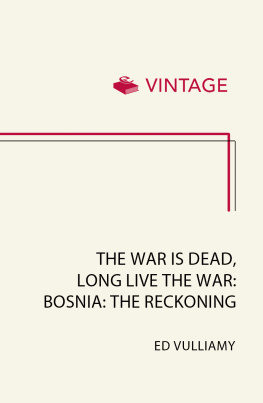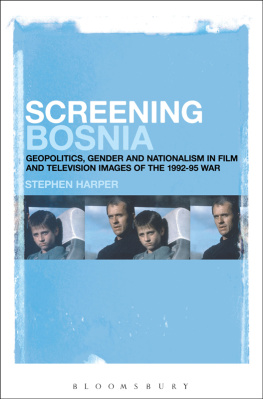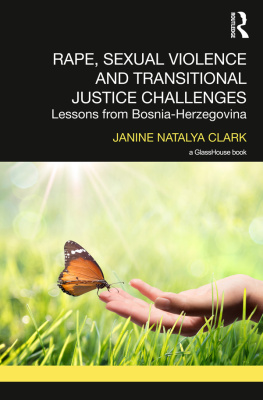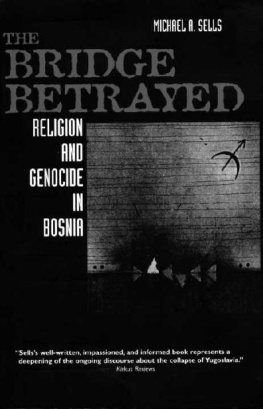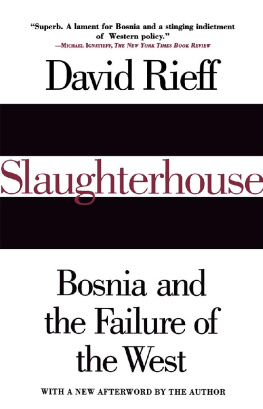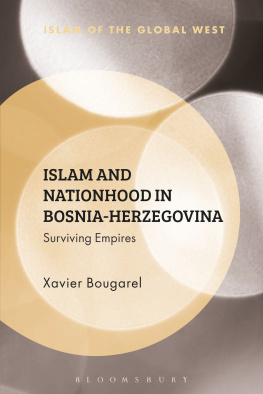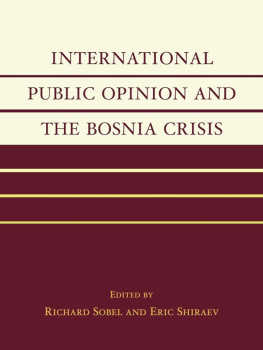About the Book
Wars come and go across the headlines and television screens, but for those who survive them, scarred and scattered, they never end. This is a book about post-conflict irresolution, about the lives of those who survived the gulag of concentration camps in north-western Bosnia and about seeking justice for Bosnia today.
But justice is not Reckoning. The book finds that the survivors are lost not only geographically, but in history betrayed in war, and also in peace.
About the Author
Ed Vulliamy is a journalist and writes for the Guardian and Observer. He has been shortlisted for an Amnesty International Media Award for his reporting on Mexico. For his work in Bosnia, Italy, the US and Iraq he won a James Cameron Award and an Amnesty International Media Award and has been named International Reporter of the Year (twice) and runner-up at the Foreign Press Association Awards. In 1996 he became the first journalist to testify at an international crimes court, as the International Criminal Tribunal for former Yugoslavia. In 2011, Ed Vulliamy testified in the trial against Radovan Karadi in The Hague. A believer in the duty of journalists to testify in matters of humanitarian law, he has since lectured extensively on the subject. His most recent book is Amexica: War Along the Borderline.
ALSO BY ED VULLIAMY
Amexica: War Along the Borderline
ED VULLIAMY
The War is Dead, Long Live the War
BOSNIA: THE RECKONING

This ebook is copyright material and must not be copied, reproduced, transferred, distributed, leased, licensed or publicly performed or used in any way except as specifically permitted in writing by the publishers, as allowed under the terms and conditions under which it was purchased or as strictly permitted by applicable copyright law. Any unauthorized distribution or use of this text may be a direct infringement of the authors and publishers rights and those responsible may be liable in law accordingly.
Version 1.0
Epub ISBN 9781446484777
www.randomhouse.co.uk
Published by Vintage 2013
2 4 6 8 10 9 7 5 3 1
Copyright Ed Vulliamy, 2012
Ed Vulliamy has asserted his right under the Copyright, Designs and Patents Act 1988 to be identified as the author of this work
First published in Great Britain in 2012 by The Bodley Head
Vintage
Random House, 20 Vauxhall Bridge Road,
London SW1V 2SA
www.vintage-books.co.uk
Addresses for companies within The Random House Group Limited can be found at: www.randomhouse.co.uk/offices.htm
The Random House Group Limited Reg. No. 954009
A CIP catalogue record for this book is available from the British Library
ISBN: 9780099569541
For Elsa and Claudia
Contents
Places and Dramatis Personae
Pronunciation note:
It helps to have the right sound in ones head when reading.
Very commonly, surnames end: I. This is pronounced ITCH, or ICH, ergo Milosev-ICH, like Dmitri Shostakovich or Roman Abramovich.
Place names ending in AC vary: Kozarac is kozar-ATS, as in cats, while Biha, with an accent, is bi-hATCH.
D, as in Karadi or Demal, is like J as in John or soft G as in George, ergo Edin Deko is pronounced GEKO, as in Gemma. Radovan Karadi is Kara-GITCH , and Demal is G-emal . DJ has the same sound, Tudjman = Tu-Gman, all with a soft G/J. The letter J in Bosnian-Serbian-Croatian, however, is always pronounced as Y, as in Jugoslavia, ergo Yugoslavia and Sarajevo = Sara-Yevo, Prijedor = Pri-Yedor.
Places
Republika Srpska A Serbian entity comprising one half of Bosnia, established by the Dayton Agreement of 1995. It was then made up of territory from which Muslims and Croats had been expelled during the war.
Federation An entity comprising the other half of Bosnia, under Dayton. Intended to be shared between Bosniaks and Croats; there are currently tensions between the two. Its citizens prefer the term Federation of BIH, while Serbs and many foreigners tend to use the derogatory Muslim-Croat Federation.
.
Kozarac Old Ottoman seat of government for the area, a town near Prijedor of 27,000 people vast majority Muslim before the war, entirely destroyed in May 1992, and its population deported or killed. Rebuilt by surviving Muslim returnees and diaspora from 1999. However, it is also part of Republika Srpska.
Banja Luka Regional centre and Bosnias second city and capital of Republika Srpska.
Sanski Most A town to the south of Prijedor, predominantly Muslim before the war, and ethnically cleansed of all non-Serbs in 1992. It was taken during the Bosnian offensive of 1995, and is the nearest town to Prijedor to be included within the Muslim-Croat Federation when Bosnia was partitioned at Dayton.
Krajina Turkish word for frontier, describes the old Ottoman front line. There is a Croatian region called the Krajina, occupied by Serb troops from 1991 to 1995, and a Bosnian Krajina region, around Prijedor and Sanski Most, from which the camp inmates mostly came.
Kevljani Small hamlet next to the village of Omarska, where a mass grave was found in 2004 containing the remains of 347 people, many of them victims of murder in the Omarska camp.
Travnik Town in central Bosnia, and ancient Ottoman capital of the country, into which hundreds of thousands of Muslims and Croats were herded across the mountains in enforced deportation convoys. Became the headquarters for the ethnically cleansed brigade of the Bosnian army, made up primarily of camp survivors, the 17th Krajina Brigade.
Mount Vlai Mountain and surrounding wilderness between Banja Luka and Travnik, across which deportees and camp inmates were herded at gunpoint. Scene of the summary massacre of 240 Muslim and Croat deportees by Serb guards on 21 August 1992.
Sarajevo Capital city of BosniaHerzegovina, besieged for three years.
Concentration Camps, established by the Bosnian Serbs for Bosnian Muslim and Croat civilians, spring 1992:
Omarska Hundreds killed and thousands of Bosnian Muslim and Croat civilians tortured on the site of an iron ore mine. Revealed by ITN and the Guardian after a visit on 5 August 1992. The ore mine now reopened and owned jointly by ArcelorMittal and the Republika Srpska.
Keraterm Concentration camp established in tile factory on outskirts of Prijedor. Scene of massacre of 150 men in Hangar Three. It was from here that prisoners were taken to on 5 August 1992, day of ITN/Guardian visit.
Trnopolje Concentration camp for civilians awaiting mass enforced deportation over Mount Vlai, many meanwhile killed, tortured, raped and beaten. Scene of the famous ribcage photograph of Fikret Ali when the camp was revealed by ITN and the Guardian in 1992.
Manjaa Camp run by the Bosnian Serb military rather than civilian authorities (as were the above). The last camp to be closed, after taking prisoners from Omarska from 6 August 1992, following its exposure.
Terms
Concentration camp I stand by this absolutely. Though not industrial death camps in the way that the Nazi camps were, the above were exactly why this term was coined, during the Boer War, to describe places in which civilians, not prisoners of war, were concentrated only because of their ethnicity, and where many were murdered, tortured and violated prior to enforced deportation. They were not, as the Serbs and their revisionist supporters claim, transit camps, collection centres or detention camps.

